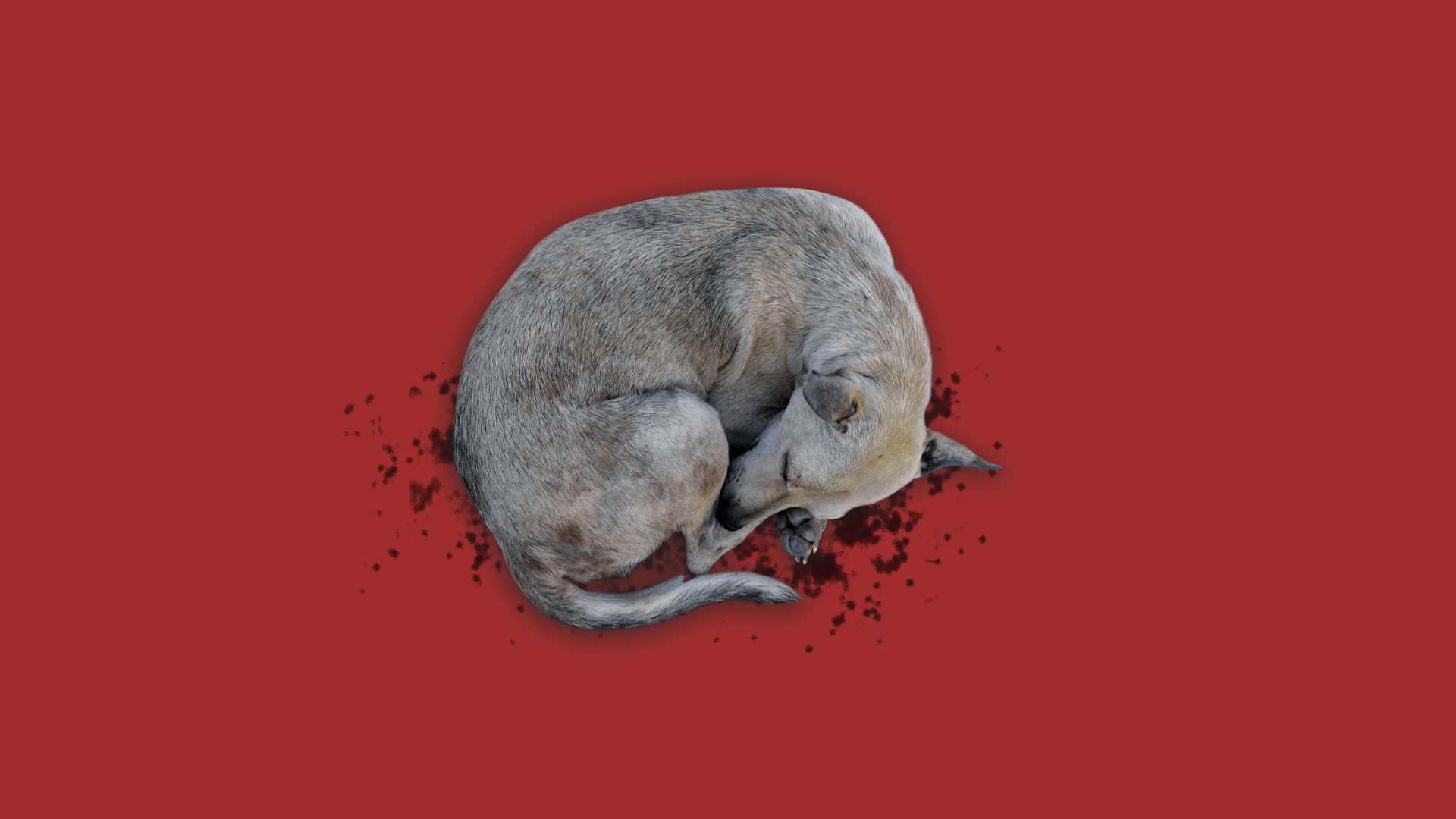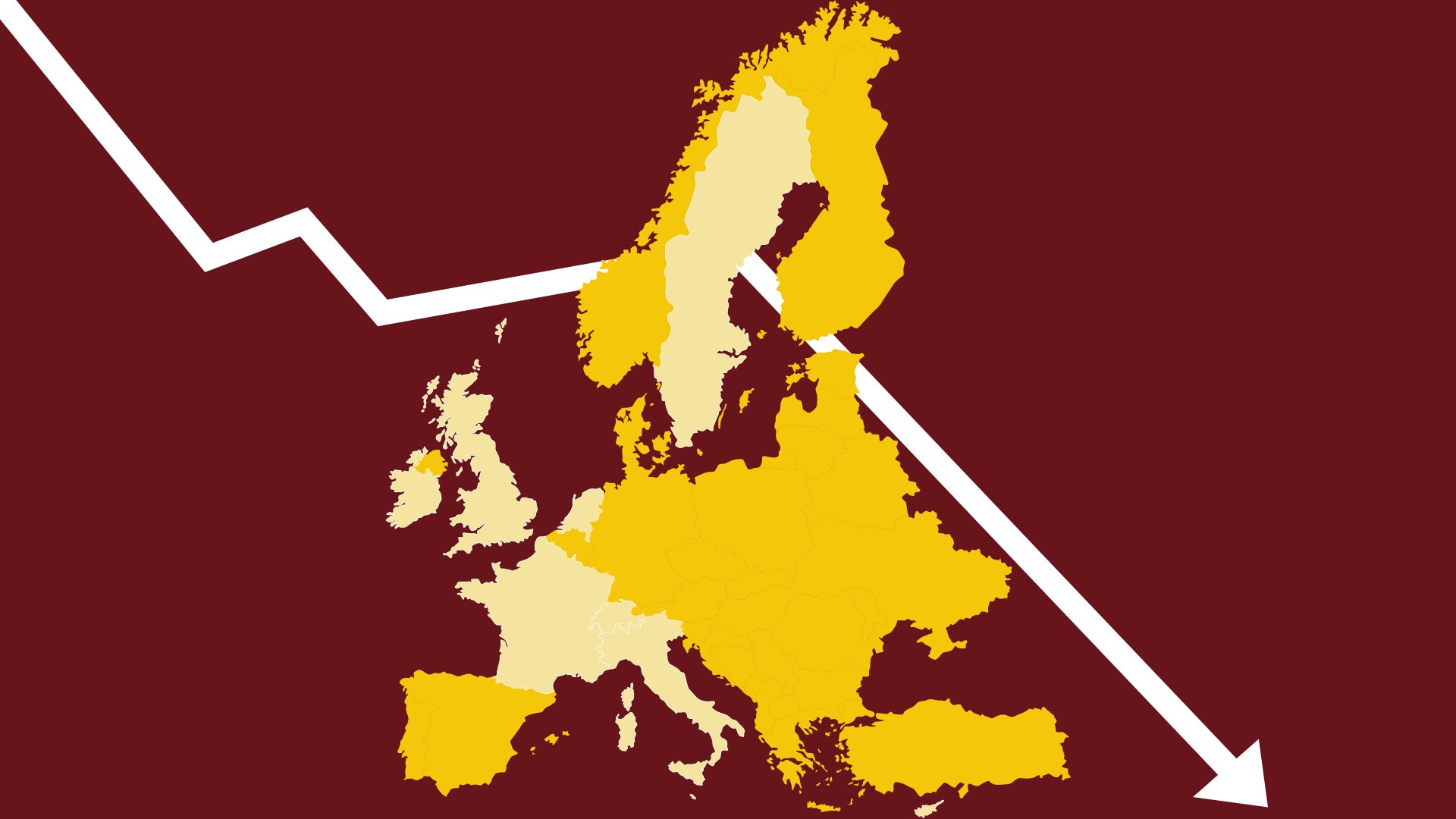On October 1, our energy bills will go up. This is scary. With prices rising by an average of over £500 despite Liz Truss’s new price cap and with barely any help from Kwasi Kwarteng’s mini-budget, millions of working people in the UK will find themselves in a struggle to survive.
Many are in that position already because of escalating food prices, and the weak pound may bring new rises in the costs of petrol. If ordinary people have to wait for wealth to find its way down from bankers’ uncapped bonuses, many will freeze, starve or turn to crime before that happens.
This feels like grind-down, not trickle-down, economics. Soon only the better-off will be able to properly heat their houses (and in some cases their stables) in the way they’ve become accustomed. Is there anything the rest of us can do? Or will we just have to shiver in the dark?
One answer is that we could live like dogs. Not the pampered, preened kind who are well-fed and get regular trips to the vet. I mean street dogs. That sounds absurd, but it’s more or less what the ancient philosophers known as Cynics advocated.
The Cynics took their name from the Greek for dog-like, κυνικός. That’s because the great founder of Cynicism, Diogenes of Sinope, whom I’ve mentioned before in this column, lived on the streets, sleeping in an old storage jar, performing his bodily functions openly without shame. He even pleasured himself in public, saying he wished that hunger could be as easily satiated as sexual desire.
But, unfortunately, just rubbing his stomach didn’t fill it up. Someone once asked him when it was best to eat lunch. His response: “If rich, whenever you want; if poor, whenever you can.” That neatly sums up what autumn and winter will be like this year.
Mark Usher, editor of a recently published collection of essays about the Cynics written by their contemporaries, How to Say No: An Ancient Guide to the Art of Cynicism, thinks we have much to learn about living from Diogenes with his “less is more” lifestyle and his exemplary commitment to decluttering. Perhaps he’s right.
Diogenes had been inspired by seeing a mouse that seemed content with just a grain or two to eat. It wasn’t anxious about where it would sleep, or afraid of the dark. So he tried to live on next to nothing. He got rid of all his possessions except for a large cloak, a knapsack, a drinking cup and a bowl. But he threw away the cup when he saw a child drinking from a stream with his hands. The bowl went the same way when he saw someone using a hollowed-out piece of bread as a plate.
Then he set to training himself to be tougher, hugging ice-cold stone statues in the winter, or rolling about in hot sand in the summer. In Athens, they called him the mad Socrates. But there was method to his madness. If he could get by on next to nothing, then other people would have little power over him.
But what would living like Diogenes mean today? He taught himself to distinguish needs from wants, and only gratified the former.
We could try the same. Live frugally. Cut back on luxuries: we really don’t need them. Then cut back more. Be more resilient. Toughen ourselves up to live through cold nights and survive on scraps of cheap or scavenged food. Don’t worry about a change of clothes: an old blanket will do just fine.
And when we can’t pay the mortgage or rent, there must be something like a storage jar to sleep in somewhere – a large Amazon box, perhaps, with bubble wrap to keep us from freezing.
But who really wants to live like a street dog? That would be a miserable existence. And don’t we owe one another more than that? Apparently not, according to the government: it’s fine to be very rich, and to get richer; poor people just need to tighten their belts and wait for the hoped-for upturn.
But what if they fall ill? No frugality or resilience training is going to save anyone if they don’t have access to doctors and hospitals. And besides, many of us wouldn’t cope on the street. Diogenes, an outlier, lasted until he was nearly 90. That’s a long time – around twice the life expectancy of rough sleepers today. Most of us, like dogs, would die far sooner.
Is that really what the government wants? Perhaps. But if so, have they really thought this through? Left uncared for, most street dogs form packs, roam wild, and cause havoc. They’re far from docile. Watch out.



